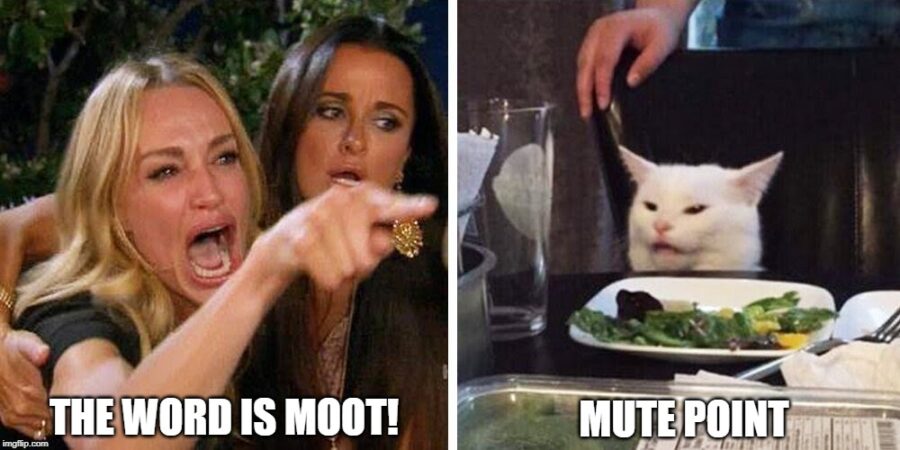In discussions, arguments, or debates, you might have heard the term “moot point.” Often, it’s used to dismiss a subject or idea, but what exactly does it mean? Let’s delve into the nuanced definitions and common misconceptions surrounding this phrase.
Moot Point Meaning
“Moot point” is a term that has evolved from a legal “legalese” meaning to an everyday meaning, depending on the context in which it’s used. It’s essential to recognize the distinctions between its legal and everyday definitions. You can more accurately interpret and utilize this phrase by understanding these variations.
Moot Point Definition (Legal Term)
Origin and Usage
In legal jargon, a moot point refers to a subject or issue that remains hypothetical mainly or academic. The term originated in England’s legal system, where a “moot” was a legal assembly for discussing hypothetical cases as a form of learning for law students.
Officially, Black’s Law Dictionary defines a moot point as “Raised during a debate, this type of matter has absolutely no effect on the debated controversy.” (Link)
Application in Law
In the legal world, a case or issue becomes moot when it’s no longer relevant or the underlying subject matter has been resolved or changed, making any further legal proceedings unnecessary. For example, a case about distributing a deceased person’s estate becomes moot if all parties reach an agreement outside of court.
In U.S. law, a case can be dismissed as moot if it fails to meet the criteria of a live controversy, or, rather, if the issue is only of an academic interest. (Link)
Moot Point Definition (Everyday Term)
Common Interpretation
Outside of legal contexts, the phrase “moot point” essentially means the same thing as the legal meaning: The controversy is settled and therefore irrelevant. In everyday language, it refers to an issue that is considered insignificant because it has already been resolved or because its resolution won’t have any practical effect.
Officially, the Cambridge Dictionary defines the everyday word “moot point” as “not important or not relevant, therefore not worth discussing”. (Link)
Examples
Suppose two people are arguing about the best route to take on a road trip, and they have already arrived at their destination. In that case, the argument becomes a moot point. Or suppose a team is debating the design of a product that’s already been manufactured. In that case, their discussion is also considered moot.
“Moot Point” Or “Mute Point”
A Common Mistake
Many people mistakenly use “mute point” instead of “moot point.” While the two sound similar, they have entirely different meanings.
“Mute” refers to the absence of sound or the inability to speak. In contrast, “moot” relates to something debatable, hypothetical, or irrelevant. Therefore, the correct phrase is “moot point,” and “mute point” is a misinterpretation of the term.
Why the Confusion?
The confusion likely arises from the similarity in pronunciation and that both words are not commonly used in everyday speech. As “mute” is more familiar, it’s often incorrectly substituted for “moot.”
Conclusion
“Moot point” has evolved from its original legal usage to become part of our everyday vocabulary. Understanding its different definitions and the correct terminology can help us communicate more effectively.
Whether used in legal contexts to refer to an issue that has become hypothetical or in everyday situations to indicate an irrelevant or insignificant matter, “moot point” is a versatile and intriguing expression. Remember, it’s “moot,” not “mute,” and you’ll be on point in any discussion.


Jeff is a lawyer in Toronto who works for a technology startup. Jeff is a frequent lecturer on employment law and is the author of an employment law textbook and various trade journal articles. Jeff is interested in Canadian business, technology and law, and this blog is his platform to share his views and tips in those areas.